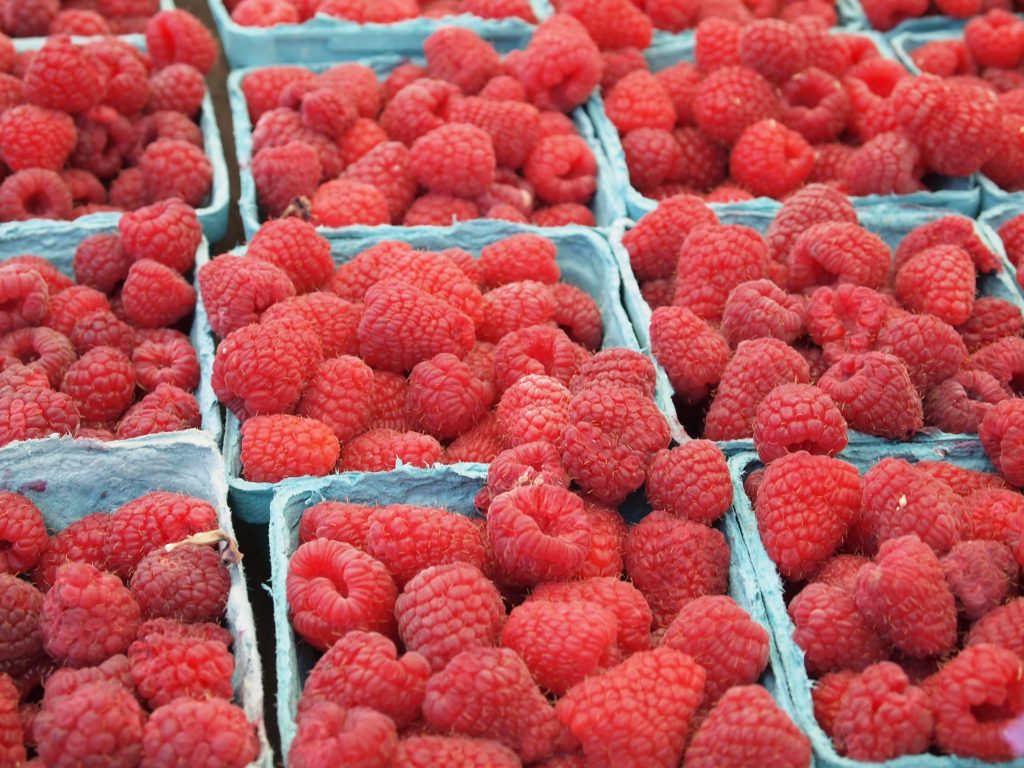We talk a lot about our five fruit and veg a day; most of us recognise the health benefits of making positive choices about what we eat.
We know which food stuffs are good for our bodies, and that too much sugar, salt and fat is harmful. Maintaining a personal balanced diet can be a challenge, weighing up cost, time, peer pressure, and pleasure.
Beyond the personal choices, there is another challenge – the negative effects our global food choices can have on the planet.
1. Food production and distribution are calculated by scientists to contribute more than 30% of total greenhouse gas emissions, that’s a big impact on climate change
2. The land required for industrial farming leads to wide-scale destruction of habitats, plant and animal diversity
3. Livestock farming uses 29% of the world’s supplies of fresh water
4. Seas and rivers are polluted and species destroyed due to fertilisers running off the land
5. Every year, the world throws away or spoils around 931 million tons of food, most of it ending up in landfills, decomposing to produce more methane emissions
There’s a pattern here to the number 5. Five major issues and five countries who make the biggest contributions to the environmental negativities arising from food production. These are India, China, the United States, Brazil, and Pakistan.
Surprisingly, the damage is not all at the gate of the forest removing, methane emitting cattle farm. The negative impact of crops such as rice and wheat are also significant, when the large amounts of water needed and nutrient pollution caused are taken into account. This is not to underestimate the massive contribution the meat and dairy industry has on climate change. According to a recent study, the combined methane emissions of 15 of the world’s largest meat and dairy companies are higher than those of several of the world’s largest countries, including Russia, Canada, and Australia. Methane, expelled by cows and their manure, is far more potent than carbon dioxide, trapping heat in the atmosphere 80 times more effectively.
While all these negative outcomes are hard enough to digest, the worst fact of all is that despite all the natural resources the food system uses, the factory farming, and the chemicals, we still don’t manage to feed the world. Famine is expected to rise to 11% of the world population in 2022. As we prepare for a time of year when we in the developed world tend to eat even more than usual, that’s a pretty sobering thought. The aim of this article is not however to guilt trip the reader out of enjoying their takeaway, home cooked feast or restaurant dinner this weekend. Just as we as individuals can change our diets, so too can we collectively help shape a transformation of our harmful, failing food system.
The UK as a nation managed to reduced food waste by 27% between 2007 and 2018, according to The Waste and Resources Action Programme, through initiatives such as eliminating “best by” dates on packaging, redistributing unused food to charities, and public education on meal planning.
Another way in which we can influence the problems caused by the global food system is through our pensions and investments. Returning again to the magic number 5, here are five ways in which a sustainable portfolio can contribute to a better planetary diet:
1. Directing investment to companies that are avoiding or reducing harm in their supply chains, such as deforestation and inefficient water use
2. Investing in companies that are part of a new food system, such as those leading the development of plant-based diets
3. Funding new technologies that make food production more efficient, using less energy and resources and creating less waste
4. Building a low carbon infrastructure, powering renewable energy and green transport (including electric tractors) to reduce the sector’s carbon footprint
5. Crucially, putting our money where are mouths are when the investment managers talk to and challenge the companies they invest in. A recent example here was a collaboration by a number of UK fund managers and the campaign group Shareaction which persuaded Tesco to reduce the amount of unhealthy food products it sells.
But how do you do this? Where do you find investments that help you nurture the planet, as well as nourish your wallet? That’s something I do here, at Somerset Wealth Management. I work with a variety of sustainable investment partners which have been chosen because they provide sustainable solutions for our clients. If you are interested in finding out more about feeding a more sustainable food system, please get in touch.
*Please note that capital is at risk and these investments are designed for the long term.
Better for you, better for the planet – food after Covid – Pictet Asset Management (am.pictet)
How much does eating meat affect nations’ greenhouse gas emissions? (sciencenews.org)
The global environmental footprint of food, from a new angle (anthropocenemagazine.org)
Halpern et. al. “The environmental footprint of global food production.” Nature Sustainability. 2022.
–Emissions Impossible: Methane Edition | IATP
Photo by Lance Grandahl on Unsplash




